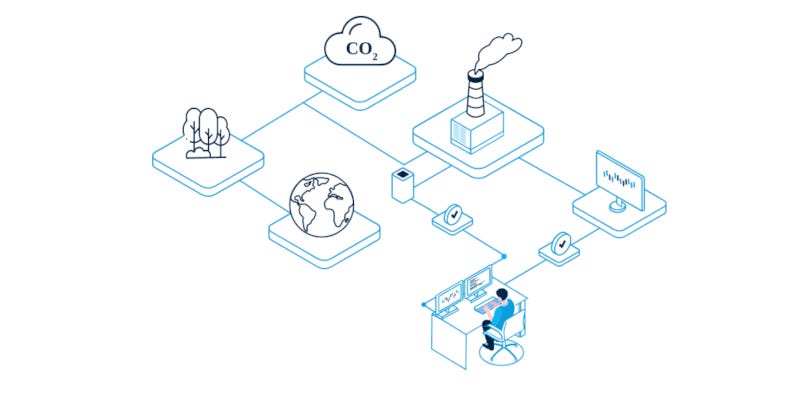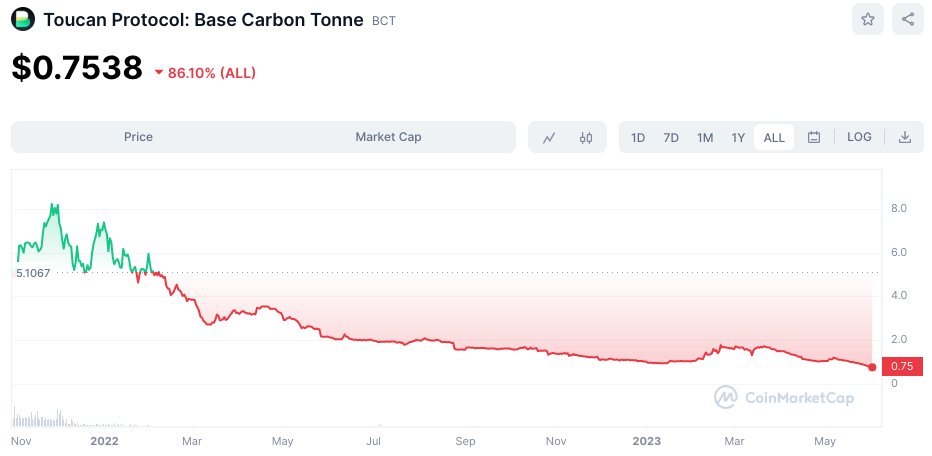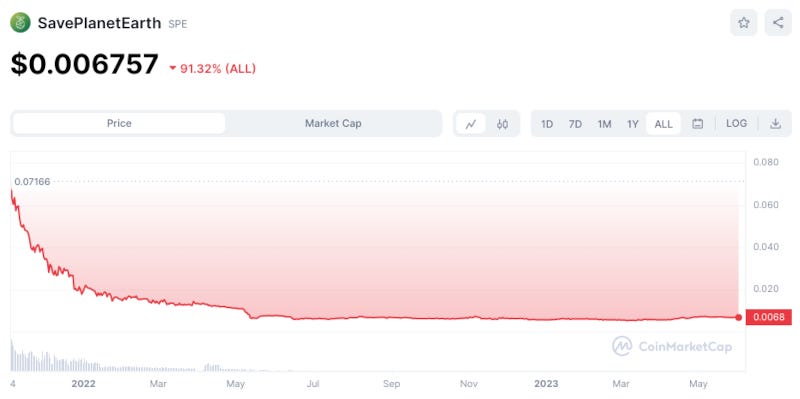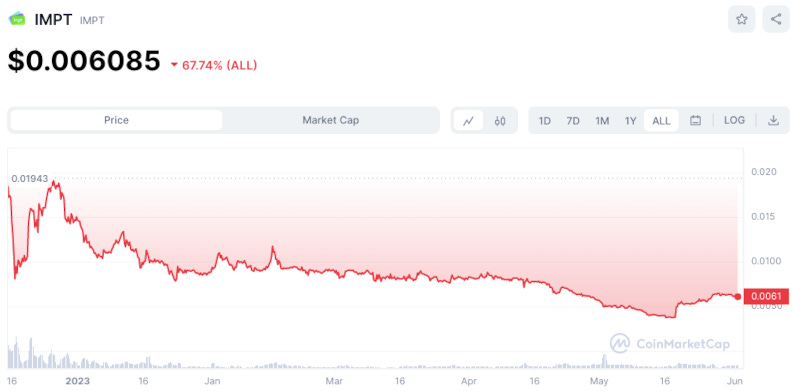Crypto and carbon offsets. A scam on top of a scam
Carbon offsets delay climate action, whether tokenised or not

Yesterday, REDD-Monitor wrote about the problems with cryptocurrencies. Today’s post is the second part of my notes for a presentation I’m giving later today, and looks at some of the crypto companies that have tokenised carbon credits.
One of the ways that crypto proponents have tried to create the illusion that cryptocurrencies are something genuine and worthwhile is by basing cryptocurrencies on carbon credits.
Carbon credits, of course, are imaginary commodities based on a counterfactual story about what might have happened if the project that generated the carbon credits did not go ahead.
So crypto, which is a trade in nothing, is attempting to claim legitimacy by trading an imaginary commodity. Even worse, this imaginary commodity is making the climate crisis more severe by delaying meaningful action to keep fossil fuels in the ground.
In May 2022, the standards organisation Verra announced that it would no longer allow carbon offsets from its registry to be tokenised.
However, Verra is carrying out a public consultation on tokenised carbon credits. In January 2023, Verra published a 170-page document summarising the comments it received. At some point, Verra will no doubt start allowing the carbon credits on its registry to be tokenised once again.
Toucan
In October 2021, a company called Toucan started “bridging” carbon offsets from the Verra registry onto the blockchain. Toucan bought up 21 million carbon offsets and put them into their Base Carbon Pool.
These tokenised carbon offsets became Base Carbon Tokens. At this stage the carbon offsets had lost all trace of the project that generated them. All Base Carbon Tokens were identical.
There is an obvious comparison with the way sub-prime loans were turned into financial assets before the financial crisis of 2007. Financial institutes transformed extremely risky mortgage-backed securities into collateralised debt obligations that were then often AAA-rated.
Many of the carbon offsets that Toucan tokenised are distinctly sub-prime. A hydropower dam in China, for example, which even Verra’s CEO David Antonioli admits, along with more than 200 other renewable energy projects in China are not actually additional.
“Those projects were developed before we came to the conclusion that they were no longer additional,” Antonioli told Energy Monitor in April 2022.
The price of Toucan’s Base Carbon Tokens has fallen steadily from US$8.22 in November 2021 down to US$0.75 today.
SavePlanetEarth
On 23 November 2021, a company called SavePlanetEarth sold a “Certified Carbon Credit Smart NFT” for nearly US$70,000. The carbon credit that this NFT was based on came from the Rimba Raya REDD project in Indonesia and cost less than US$20 to buy.
The company Save Planet Earth Limited was incorporated in the UK, but was dissolved in September 2022.
Imran Ali, the man behind SavePlanetEarth, incorporated a new company called Planetary Carbon Standard Limited on 19 May 2023.
When I wrote about SavePlanetEarth in January 2022, I sent a series of questions to Ali. He did not reply.
SavePlanetEarth’s website claims to have projects in Brazil, Sri Lanka, and Maldives. The project in Brazil, run by a company called TMZN, is called Tokenize Amazon Project.
TMZN claims to have bought an area of 1,000 hectares and is using the “Planetary Carbon Standard” to generate its carbon credits. A company called Sri Lanka Climate Fund will validate and verify the project and subsequently issue “Sri Lanka Certified Emission Reductions” or SLCERs.
In an announcement about the company’s two year anniversary, SavePlanetEarth wrote that,
Buyers are already lined up for the carbon credits generated from the Amazon project, amounting to 8.5 million credits through PCS. Additionally another 27 million carbon credits are already in the pipeline.
SavePlanetEarth’s token is currently trading at US$0.006756:
Flowcarbon
In May 2022, a company called Flowcarbon announced that it had raised US$70 million in its first major funding round. The company exists to tokenise carbon credits, in particular those from nature-based projects.
Flowcarbon was created by Adam Neumann who is infamous for his role in WeWork, a company that crashed spectacularly 2019.
Flowcarbon was incorporated in the tax haven of Delaware on 8 July 2021.
Flowcarbon’s tokenised carbon credits are called “Goddess Nature Tokens”. These were to be offered for sale to the public in June 2022. But in July 2022, the Wall Street Journal reported that Flowcarbon had decided to “wait for markets to stabilize” after crypto markets crashed. Between April and June 2022, the price of Bitcoin fell by more than half.
Nemus Earth
Nemus Earth offers collectable NFTs that are supposedly going to save the Amazon Rainforest. The company was set up by Flavio De Meira Penna who previously ran a timber company called ASF Brazil (Amazon Sustainable Forestry).
The NFTs are tied to specific areas of forest. Sales of the NFTs pays for “operations and the purchase of the land”, according to Nemus. A March 2022 press release claimed that,
“Nemus has secured 41,000 hectares of actual at-risk land in the Amazon rainforest. An additional 6.1 million hectares (~15 million acres) is currently under negotiation.”
The company plans to generate carbon credits from the land it claims to have secured and it has plans to control a vast area of the Amazon.
In July 2022 Brazil’s Federal Prosecution Office issued a notice giving Nemus 15 days to prove that the company actually owns the land that it claims to be buying. The prosecutors’ notice followed a complaint from the Apurinã Indigenous People who accuse Nemus of pressuring them to sign documents that they could not understand.
In December 2022, prosecutors told Nemus to stop NFT sales. They also told Nemus not to “contact or co-opt” Apurinã leaders. Federal prosecutor Fernando Merlotto Soave told Thomson Reuters Foundation that Nemus had 10 days to outline its compliance measures and that failure to do so would result in legal action.
In May 2023, Nemus wrote that, “The property Nemus used for the Genesis Drop is currently under litigation.” And, “Nemus has been busy at work over the past months developing a relationship with other communities.”
ONE Amazon
In September 2022, a US-based company called ONE Amazon signed an agreement with the Interprovincial Federation of Shuar Centers (FICSH) in Ecuador.
The Agreement is heavily biased in favour of ONE Amazon and against the Shuar Indigenous People.
In February 2023, the Shuar Federation held an Assembly and decided to cancel the contract with ONE Amazon.
The project was supposed to protect the forest on more than 830,000 hectares of forest and would generate something called Valores. These are, according to the Agreement, to be sold on a market which does not yet exist. ONE Amazon does not have approval from the US Securities and Exchange Commission to trade these Valores.
REDD-Monitor sent some questions to ONE Amazon, but did not receive a reply. One of the questions asked ONE Amazon to explain exactly what the Valores are, and whether they are based on carbon credits.
ONE Amazon applied for a trademark in the US for “Internet of Forests”. I also asked ONE Amazon to explain what this “Internet of Forests” actually is, and what it might imply for the Shuar Indigenous People.
The project would involve an extraordinary level of surveillance over the Shuar’s territory, involving “sensors, radars or other equipment in the field”, according to the Agreement.
IMPT
IMPT Token is a cryptocurrency based on carbon credits. The idea is that by shopping on IMPT’s platform, you can earn IMPT tokens which you can convert to carbon credits “and help contribute meaningfully to reduce global carbon levels”.
IMPT appears obviously oblivious to the fact that to address the climate crisis we need to leave fossil fuels in the ground. Denis Creighton, IMPT’s CEO recently said that,
“I think the important thing as well is we’re not looking for people to make a significant change in how they go about their day-to-day shopping.”
The company’s message is that the rich can carry on with their over-consumption, extractive industries and the fossil fuel industries can continue business as usual, and carbon credits will save the day. It is completely delusional.
IMPT has created an app, allowing shopping from the comfort of your smartphone. It’s been downloaded more than 1,000 times. My favourite comment on Google Play is this one:
“Tried it. It’s linked to some worthless cryptocurrency. Waste of time.”
The IMPT token is currently changing hands at US$0.006084:
Tokenised carbon credits benefit polluters, not the climate
The problem with tokenised carbon credits is that putting carbon credits on the blockchain doesn’t actually address any of the problems associated with carbon credits.
Adding a layer of cryptocurrency on top of a false solution to the climate crisis has achieved nothing in terms of reducing greenhouse gas emissions, let along leaving fossil fuels in the ground.
Carbon credits exist so that Big Polluters can continue business as usual while giving the impression that they are doing something about the climate crisis.
Whether Big Polluters buy carbon credits on or off the blockchain makes no difference to the fact that polluting corporations are using carbon credits in order to continue polluting.








Exactly! Great reporting, thank you!
Conflating carbon credits with blockchain makes no sense at all. The purpose of an NFT is that it is non-fungible. But a carbon credit is SUPPOSED to extinguish when matched to its supposedly offsetting emission. Therefore a carbon credit CANNOT be an NFT! But in the bullshit realm of offsets and crypto, it seems that if you can imagine it, it becomes real, like hitting the "IRL" button below a photo. All this money flowing in circles for blockchain and offsets should be funding mitigation and adaptation for the global South. If people could see the latest climate science, they would be very sorry about all this carbon-marketing nonsense and get to work cutting back their energy consumption so that fossil fuels can be left in the ground. Enough already!